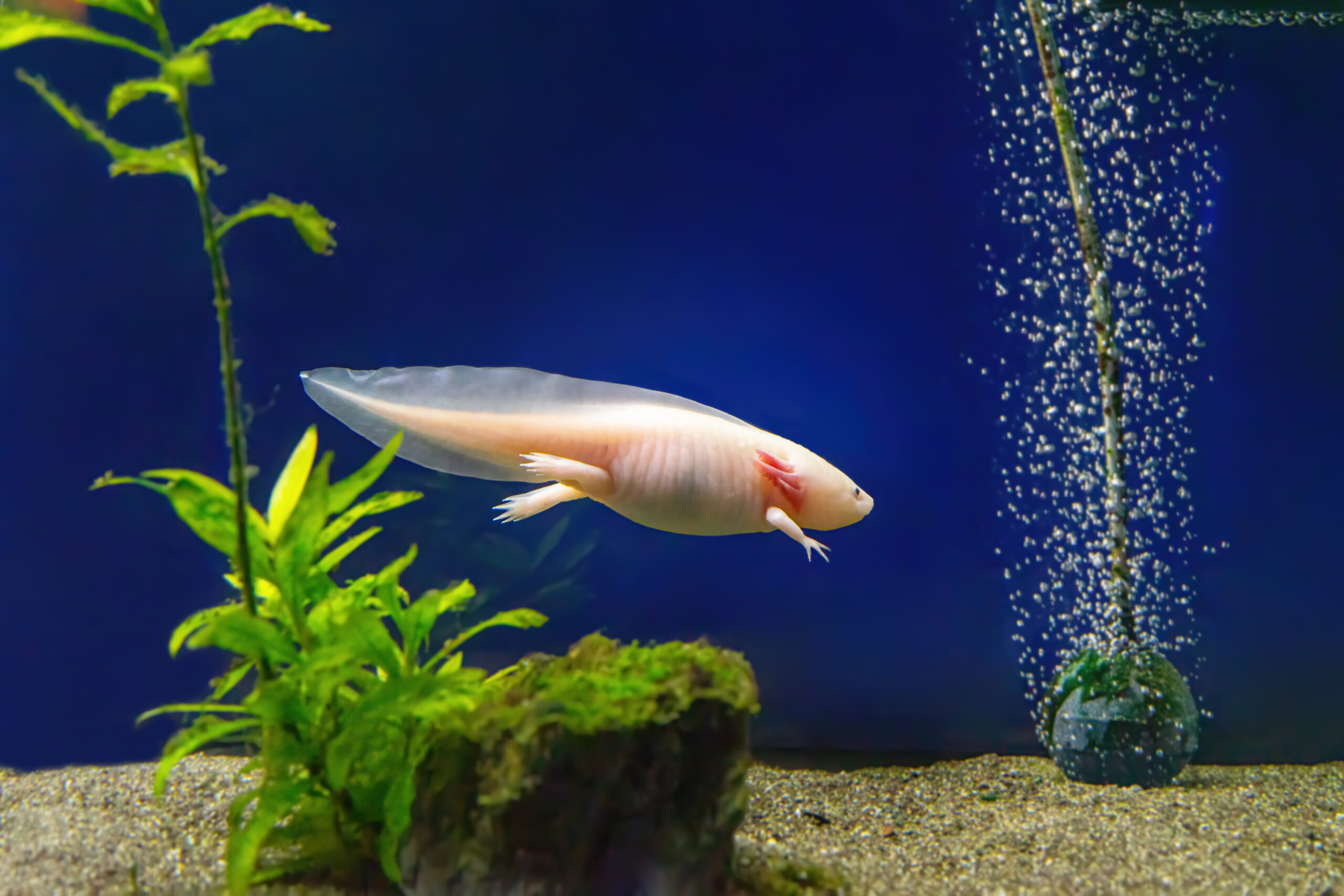
Food
Live or frozen food, which should you choose?
Lire l'article
Health
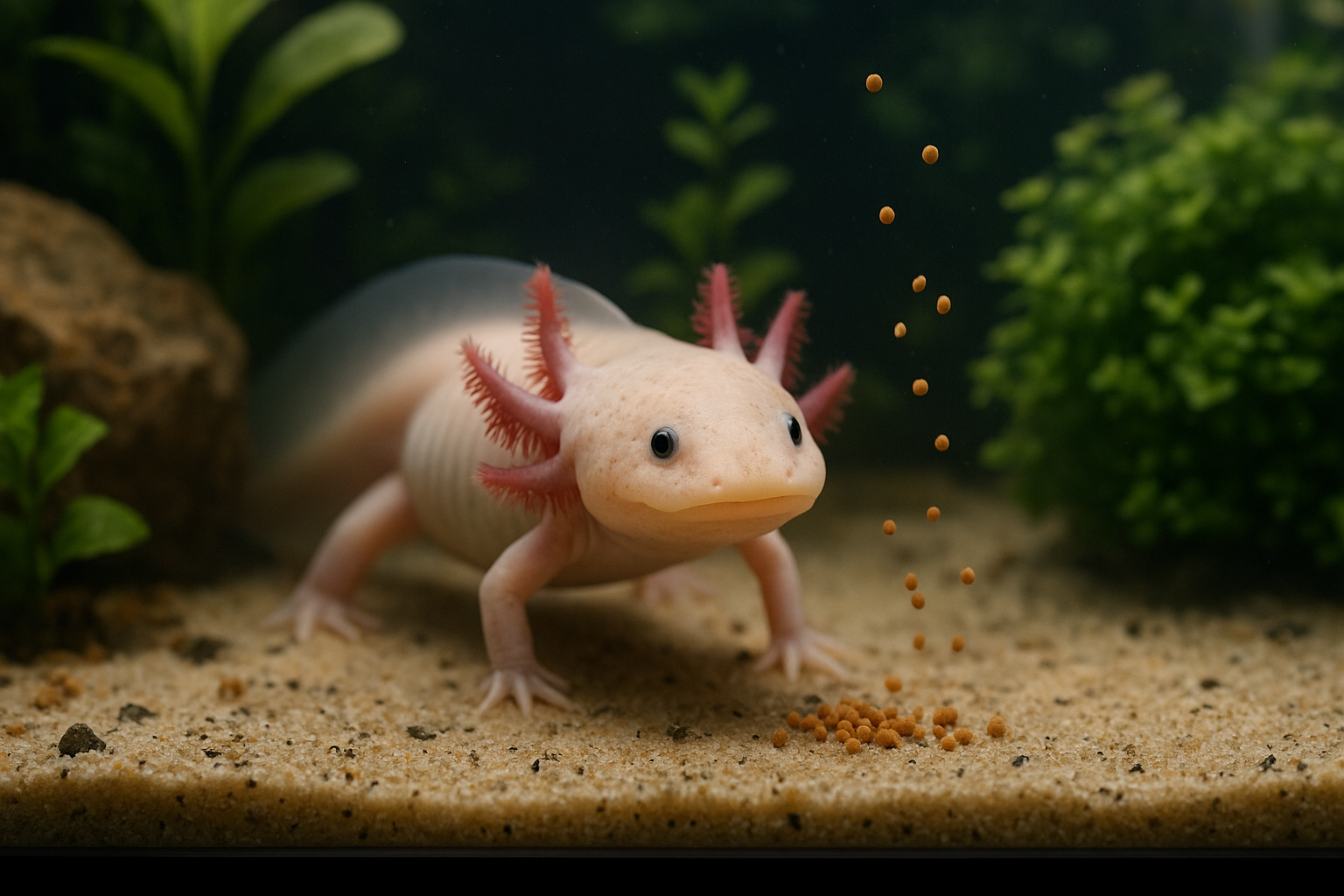
Is your axolotl refusing to eat for a few days? Don’t panic right away: this behavior can be harmless… or it could indicate a more serious issue. The key is to identify the cause and respond methodically. Here are the possible reasons for appetite loss in axolotls and the actions you can take.
Axolotls are sensitive to temperature. Water that is too warm slows their metabolism and can cause stress, often leading to a refusal to eat. Ideally, the water should be kept between 16 and 18 °C, with a maximum tolerance of up to 20 °C in summer.
During heat waves, place the tank in a cool room, cover the side panels, reduce lighting, and avoid any external heat sources (overpowered filter, direct sunlight, etc.).
A move, a new tank, the addition of a decorative element, or even a change in feeding schedule can disturb an axolotl. This stress may temporarily suppress its appetite. Sometimes it just takes a few days for it to get used to its new environment.
A spike in nitrites or ammonia, a pH that is too acidic, or overly stagnant water can make the axolotl uncomfortable or even sick. A sudden loss of appetite can be the first sign of an imbalance.
Test the water with appropriate strips or liquid tests and check:
If in doubt, perform a partial water change (30–50 %) and monitor the situation.
Parasites, an internal injury, an infection, or a foreign object swallowed accidentally can cause appetite loss. Watch for the following signs:
If these symptoms persist, it’s best to consult a veterinarian specialized in exotic pets.
Unlike some domestic animals, axolotls don’t eat every day. An adult can easily go 2 to 4 days without eating without consequences. Juveniles will eat more often (daily or every other day), but in smaller amounts.
If your axolotl ate well recently, it may simply still be full.
Some axolotls are picky: they prefer live food or refuse pellets if they don’t sink. Try different options:
Offer the food with tweezers, as close to the axolotl’s mouth as possible, to stimulate its hunting instinct.
An adult axolotl may fast for a few days, especially during seasonal changes or when preparing to shed. This behavior is natural as long as it remains active and otherwise healthy.
If the axolotl stops eating altogether for more than a week, or if this is accompanied by changes in behavior or appearance, action is needed:
An axolotl that stops eating isn’t necessarily in danger, but it always warrants careful observation. In most cases, a mild cause (stress, temperature, unsuitable food) is to blame and can be resolved quickly. If the behavior persists, it’s best to consult a professional to prevent the problem from worsening.

Food
Lire l'article
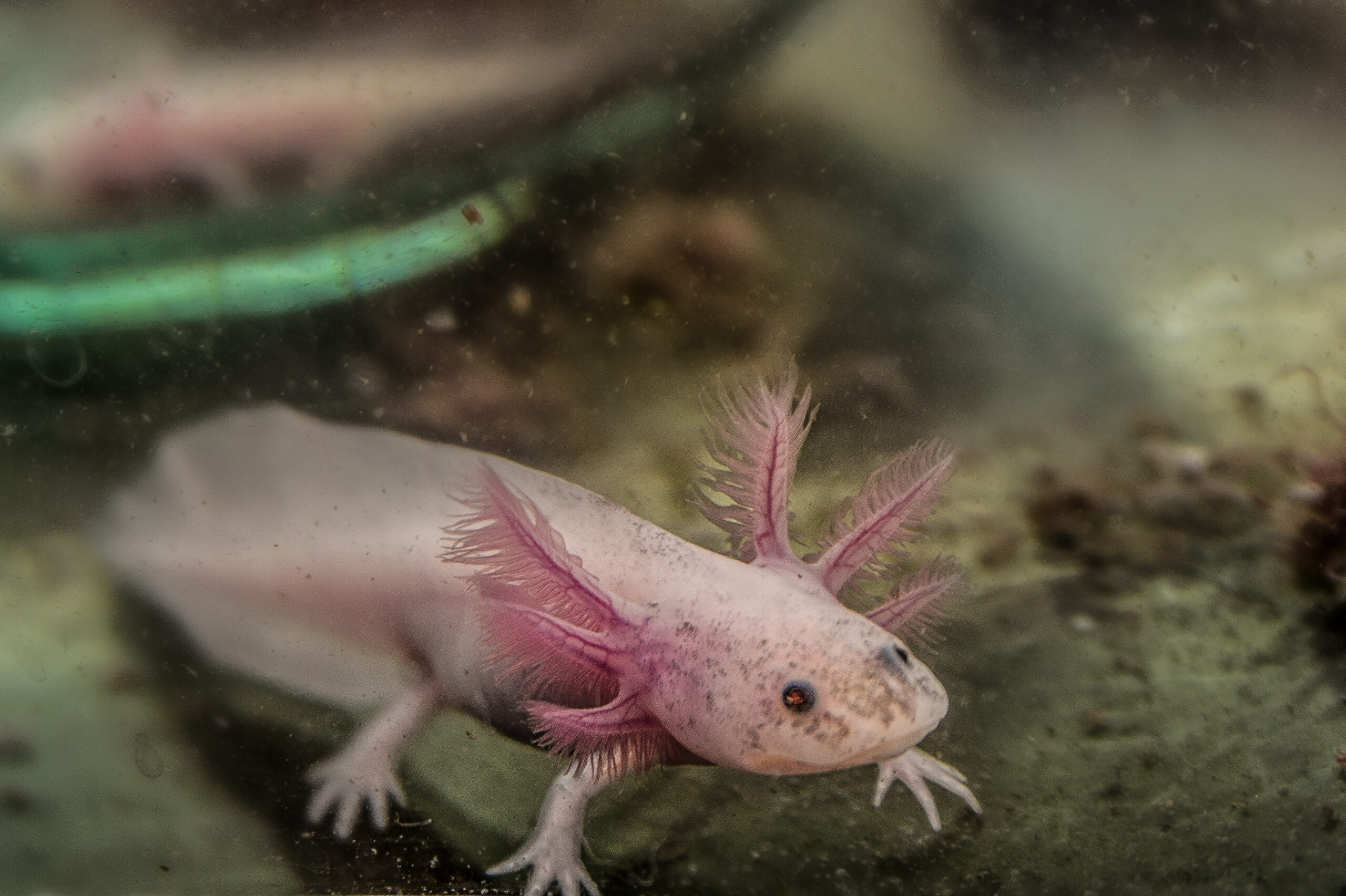
Pratique
Lire l'article
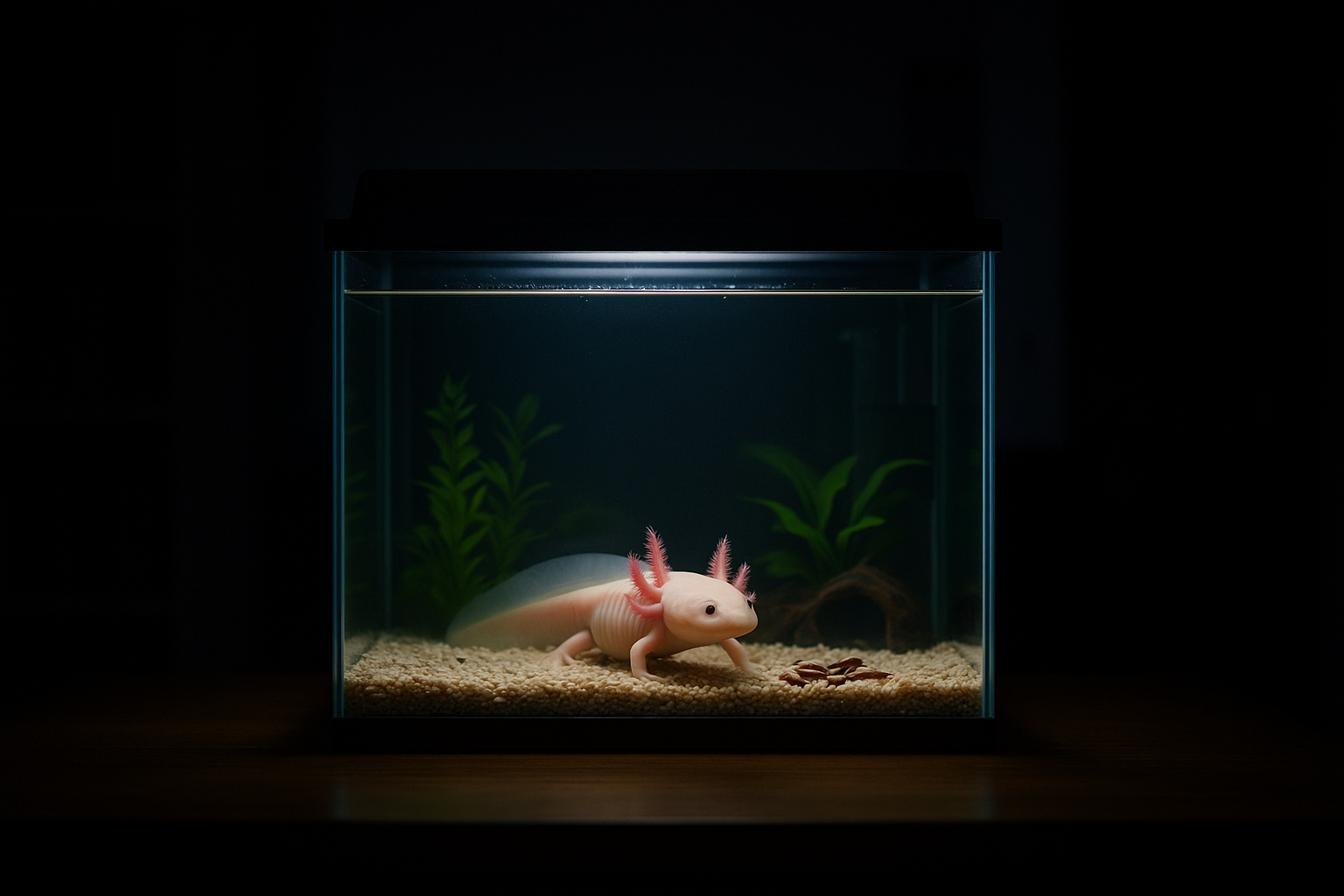
Equipement
Lire l'article
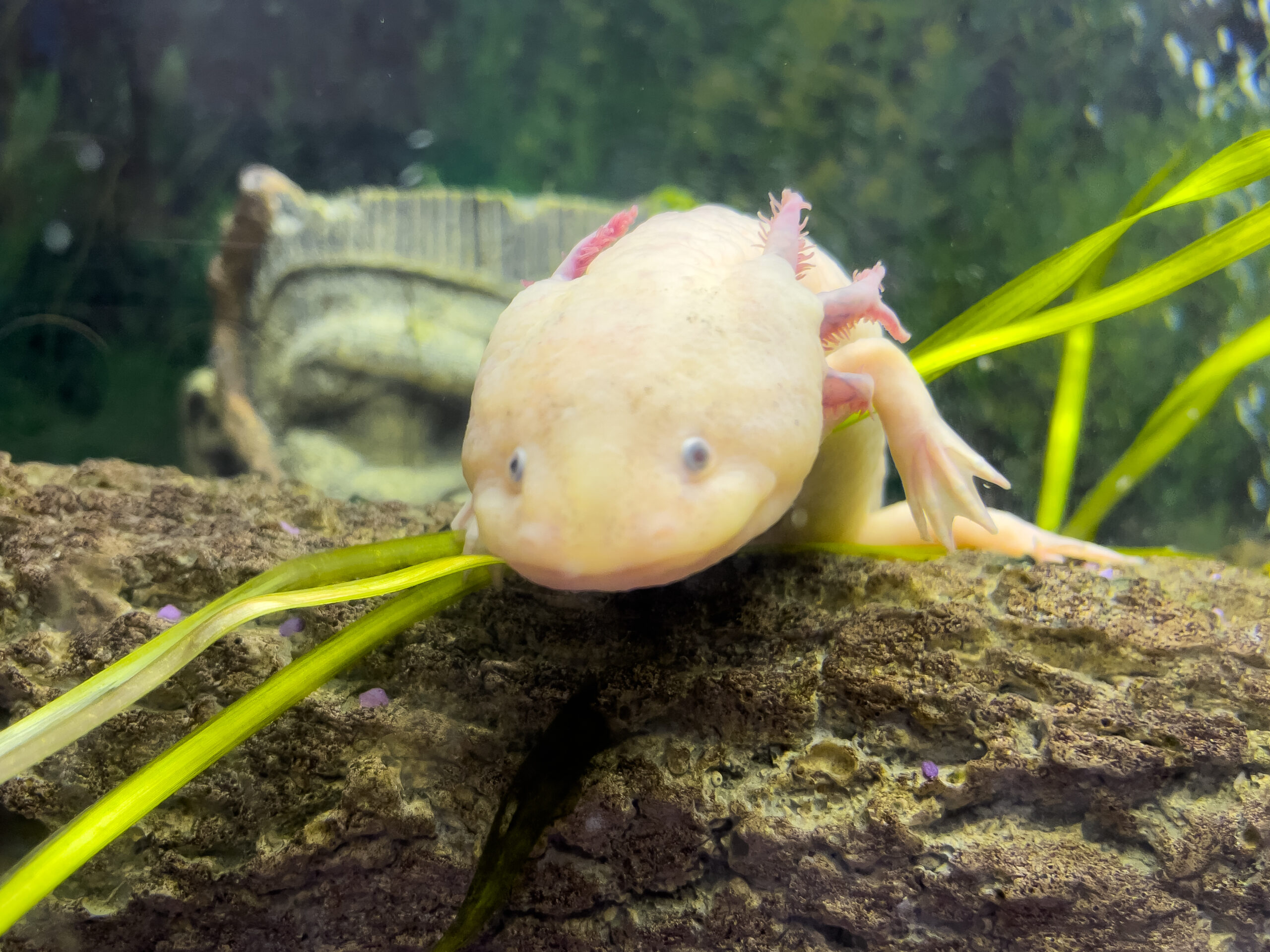
Equipement
Lire l'article
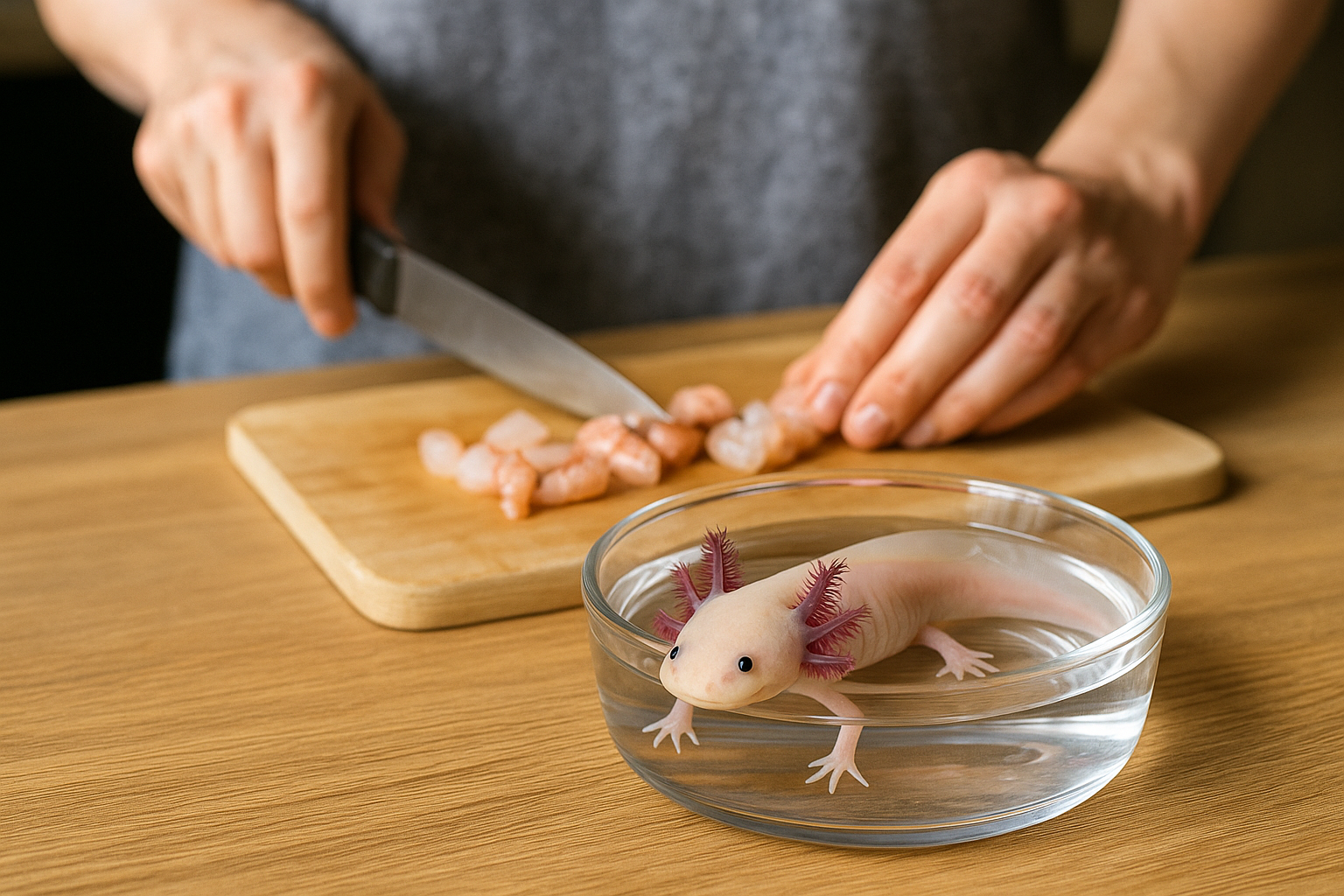
Food
Lire l'article